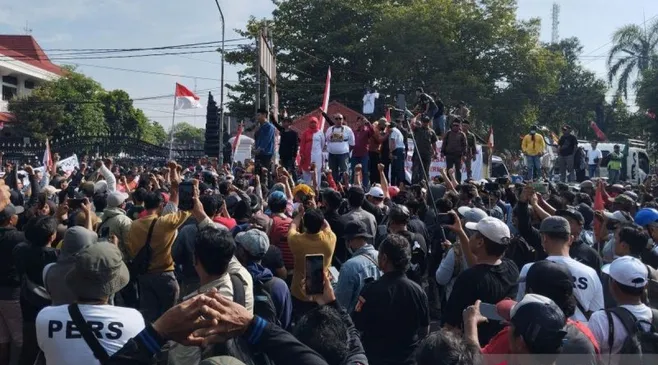The Ministry of Home Affairs has confirmed that drastic hikes in Land and building tax (Pajak Bumi & Bangunan/PBB) across several districts and cities in Indonesia have been officially postponed and, in some areas, revoked.
This decision followed strong public backlash that began in Pati, Central Java, where residents took to the streets to protest against a 250% increase in Land and building tax.
The controversy erupted in early August 2025 when the Pati Regency government announced plans to raise PBB by up to 250%.
Local authorities justified the move by citing stagnant property values, or Nilai Jual Objek Pajak (NJOP), which had not been adjusted since 2011. Bupati Sudewo argued the hike was necessary to boost regional revenue, which lagged far behind neighboring districts such as Jepara and Kudus.
However, the sharp increase sparked outrage. Residents organized mass demonstrations on 13 August 2025, mobilizing thousands. Despite eventually canceling the tax hike and promising refunds to residents who had already paid, protests continued.
Demonstrators called for Sudewo’s resignation, with some throwing shoes and water bottles at him during a heated encounter. The local parliament has since launched an inquiry into his leadership, raising the possibility of impeachment.
Protests Spread to Other Regions
The turmoil in Pati quickly spread nationwide. According to Deputy Minister of Home Affairs, Bima Arya Sugiarto, 104 regions had imposed PBB increases, with at least 20 raising rates by more than 100%. Following Pati’s protests, demonstrations broke out in multiple areas :
– Bone, South Sulawesi: Residents and student groups staged rallies against what they claimed was a 300% increase. The local government disputed the figure, saying the actual rise was 65%. Nevertheless, after sustained demonstrations—including attempts by protesters to storm the regent’s office—the policy was suspended.
– Cirebon, West Java: Here, PBB rates had already been raised in 2024 under Regional Regulation No. 1/2024. In some cases, residents reported tax hikes of up to 1,000%, sparking discontent. Although legal challenges to the Supreme Court were rejected, the success of protests in Pati reignited local opposition. Civic groups are now planning new demonstrations in September 2025.
– Other areas, such as Semarang, also reported significant spikes, with some households seeing tax bills jump more than 400%.
Central Government Steps In
Facing mounting unrest, Ministry of Home Affairs intervened. Acting Director General of Regional Fiscal Development, Horas Maurits Panjaitan, emphasized that land and building tax increases must be gradual and properly reviewed. He suggested that adjustments should ideally occur every three years, capped at modest rates below 15%, rather than sudden triple-digit hikes.
Maurits also stressed that exemptions or reductions should be provided for low-income residents to prevent disproportionate burdens. He underlined that when the hike is deemed too drastic, the policy should be postponed or even revoked.
Ministry of Home Affairs confirmed that several regions—including Pati, Bone, and Jombang—have already canceled or suspended their policies. The ministry also issued a circular to all local governments, urging them to reevaluate tax regulations to ensure they remain “people-centered” and aligned with fiscal capacity.
The Broader Context
Economists note that the push to raise PBB may be linked to reduced central government transfers (Transfers to Regions), forcing local administrations to seek additional revenue. However, this approach has been criticized as short-sighted and socially disruptive.
The Pati case highlights the risks of implementing sudden fiscal changes without broad consultation or phased planning. It also demonstrates how local discontent can quickly escalate into widespread social movements, especially when citizens feel excluded from decision-making.
The wave of protests underscores the importance of balance in local fiscal policies: while regional governments require sufficient revenue to operate, measures must be carefully designed to avoid placing excessive burdens on households. Transparent communication, gradual adjustments, and protection for vulnerable groups are seen as key principles moving forward.
For now, the government’s intervention has calmed tensions, but the controversy leaves behind an important reminder: taxation policies that directly affect people’s livelihoods cannot be handled hastily. The events in Pati have become a national wake-up call, setting a precedent for how citizens can influence governance when collective interests are at stake.
Source: Detik, Tempo, BBC, BeritaSatu
Photo Credit: Antara


